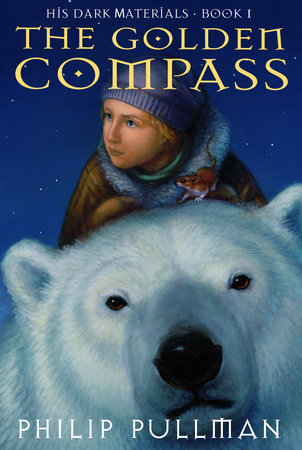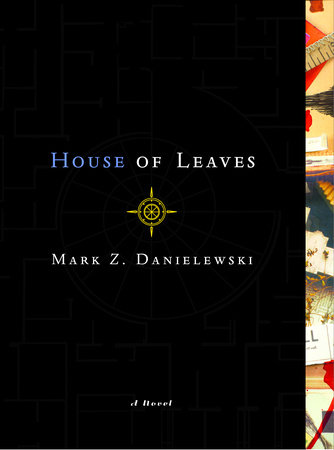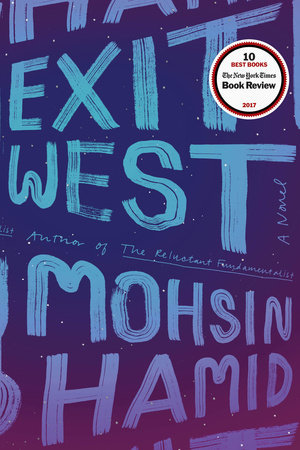You know how these stories go: Someone, a misfit kid or an English schoolgirl, finds a mysterious door—and of course she walks through it, because she is a protagonist. The door leads Somewhere Else, where she faces trials and adventures, saves a kingdom or two, and returns in the final chapter to our own humdrum world.
These are stories about prophecies and pixie dust, about Wonderlands and Neverlands and those too-brief years when we are young enough to believe that, this time, we might find something other than old coats and mothballs in the back of the closet. They are pleasant, whimsical fantasies.
But they are also—particularly if you squint too closely at their rotten nineteenth-century roots—colonial fantasies. Take Narnia: an imaginary kingdom in desperate need of four white foreigners to rule it, populated by grateful talking animals rather than resentful natives. Lewis imagined the perfect colony, at a time when Britain’s actual colonies were increasingly fractious.
Like most oddball kids stuck in inhospitable environments (rural Kentucky, mid-1990s), I wanted very badly to find my door, and made do with books. When I eventually wrote my own (rural Kentucky, mid 2010s), I wanted to write the same kind of whimsical, through-the-wardrobe fantasy that I’d loved as a kid—but I wanted to turn it inside-out and backwards. I wanted a Narnia without kings or queens.
I am not, of course, the first to decolonize the idea of the magic door. Here are seven other books whose doors don’t lead where you would expect.

The His Dark Materials series by Philip Pullman
On paper, Philip Pullman’s protagonists are excellent candidates to discover a passageway to another world and end up illegitimate monarchs. Lyra and Will are both intrepid, unsupervised English schoolkids, with at least one quasi-Biblical prophecy concerning their futures. But when they find ways to other worlds—through cuts in the air, near-invisible windows that I’m counting as doors—they don’t come as conquering heroes. Instead, they participate in a multi-world revolution against the Authority and reenact a second Fall from Eden. I can think of nothing Mr. Lewis would like less.

Strange the Dreamer by Laini Taylor
Most books about magic doors begin with the journey through the door and end with a battle. But Laini Taylor’s Strange the Dreamer duology is interested instead in the long, tangled aftermath that follows the battle. Imagine god-like strangers had slid into another world and crushed it beneath their boot heels; imagine the native citizens had one day risen up to slaughter their oppressors in turn; imagine five children surviving, navigating the scars where two worlds collided. In Taylor’s books, conquest is not a childish dream, but a terrible reality.

The Light Between Worlds by Laura E. Weymouth
Laura E. Weymouth’s book is also concerned with aftermaths, but hers are the intimate, personal aftermaths of human hearts. Philippa and Evelyn Hapwell are sisters who found their way to the Woodlands during World War II, but are trapped now in our own dreary world. Instead of confident child-queens, like Susan and Lucy, the Hapwells are just two lost girls. Aslan’s famous pronouncement—“once a king or queen of Narnia, always a king of Narnia”—has been replaced by a more wistful, personal promise that “a Woodland heart always finds its way home.”

Every Heart a Doorway by Seanan McGuire
Seanan McGuire is worried about the kids post-wardrobe, too. Her Wayward Children series takes place in a boarding school for children who have fallen into Wonderlands and come back haunted and homesick. While the doors the kids find are very familiar to fantasy readers, the children themselves are less so. Instead of straight, white, middle-class-ish kids named things like Alice or Edmund, Eleanor West’s Home for Wayward Children is filled with outcasts and misfits, the people shoved into the margins of our world and obliged to find others.

Coraline by Neil Gaiman
Neil Gaiman’s Coraline takes the cozy story of the little English girl finding a door—think of Lucy and the wardrobe or Mary Lennox and the secret garden—and makes it into a nightmare. Where other little girls found pleasantly untidy worlds in need of their civilized, domestic presence, Coraline finds a trap: a twisted mirror-world meant to lure her deeper, a gingerbread house constructed by her Other Mother. It is, like all the best horror, an inversion of a story we thought we knew well.

House of Leaves by Mark Z. Danielewski
House of Leaves is what might happen if Coraline grew up and got an MFA. It’s an epistolary horror novel concerning a house on Ash Tree Lane, where a doorway appears that shouldn’t exist. It leads to an endless labyrinth of cold halls and a staircase that spirals down into an abyss, and the single scariest piece of wordplay in English literature (when the little girl asks her father to play always with her, he later realizes what she was really saying: hallways). It’s not a stretch to read House of Leaves as a colonial fantasy gone terribly wrong—the homeowners mount expeditions into the hallways, armed with maps and compasses and guns, and it ends poorly. This frontier has fangs.

Exit West by Mohsin Hamid
In some ways, Exit West is the most thorough reclamation of the magic-door trope. Instead of doors that lead to other worlds, Hamid’s doors lead to different places within this one. Instead of permitting only the chosen few children through, these doors are used by thousands of fleeing refugees. Instead of white children colonizing imaginary frontiers, the citizens of the unnamed frontiers invade the metropole. Instead of a Victorian fantasy, Hamid’s doors are a Victorian’s worst fear.
The post 7 Books About Magic Doors for the People Narnia Left Behind appeared first on Electric Literature.
Source : 7 Books About Magic Doors for the People Narnia Left Behind










